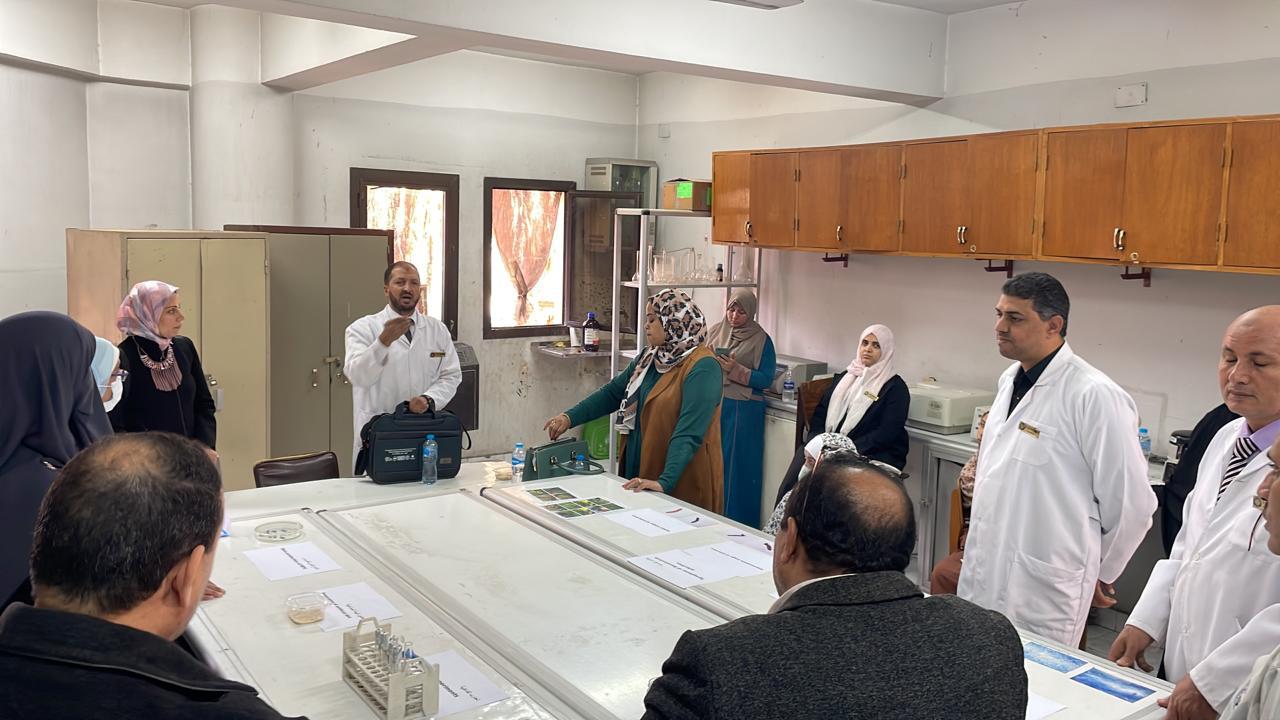FAO concludes training on facing climate change challenges by controlling Fall Armyworm using environmentally sustainable methods

Kafr El-Sheikh, Egypt (4-7 December 2022) The Food and Agriculture Organization (FAO), in cooperation with the Plant Protection Research Institute of the Egyptian Ministry of Agriculture, implemented three training programs to transfer the technology of mass rearing of the natural enemies of the Fall Armyworm (FAW). The training program involved 85 trainees, including researchers and stakeholders, who received guidance on the latest technology transfer skills to face the challenges of climate change by controlling FAW.
Three different governmental research stations covering the governorates of Upper, Middle, and Lower Egypt hosted these training programs for technology transfer. The training also focused on exchanging practical knowledge between researchers and technicians specialized in pest biocontrol on the technology of mass rearing of FAW eggs parasitoids (Telenomus Remus). FAW was originally discovered in maize fields in Upper Egypt, through a pilot survey that targeted the presence of natural enemies of FAW in the Egyptian environment.
These training programs are part of the activities of the Fall Armyworm (FAW) Global Mobility Project, which is currently being implemented in Egypt as a model country for the Near East and North Africa (NENA) region.
Furthermore, local research studies are being conducted at the Shandaweel Research Station in Sohag Governorate to evaluate the efficacy of the Telenomus parasitoid in controlling FAW, both under laboratory and field conditions. The potential efficacy of Telenomus on FAW represents a promising strategy to mitigate and control the risk of FAW infestation in Egyptian maize fields.
The information collected during these training programs from participants, who come from different backgrounds, contribute to the establishment of a detailed protocol for the mass rearing of this parasitoid, including the breeding of its main and alternative hosts, to be shared with other specialized laboratories in Egypt as well as the countries in the NENA region.
The adoption of the protocol in the biological control laboratories in Egypt will lead to strengthening the national capacities for the mass rearing of the Telenomus parasitoid in all maize fields. This protocol would help reduce maize crop losses resulting from FAW infestation as well as increase farmers' reliance on biological control as an alternative to pesticides.
During the program, the trainees recommended limiting the use of hazardous chemical pesticides and maximizing the use of sustainable and environmentally friendly methods to include natural enemies and biopesticides, which have shown a significant impact on the rate of FAW infestation, thus reducing crop yield loss.
